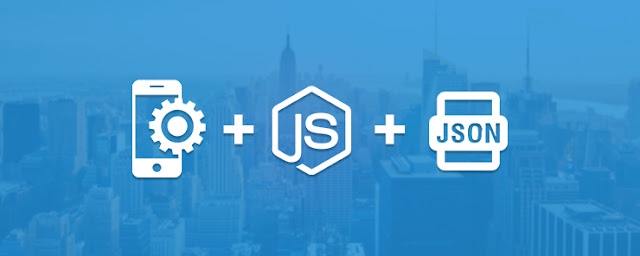Using NodeJS and JSON in Mobile App Development
An intro to JSON and NodeJS
For those new to application growth, older technology such as PHP and SQL have been used to build database-based web-based systems, and these have been met with a lack of scalability, which frequently needs a full redesign to extend the interface. The advent of Javascript and related libraries and frameworks has meant that as mobile applications have become more data-intensive and real-time changes have arisen, then solutions have been built to allow these solutions to be used further.
What is JSON
JSON is a syntax (or method) for data storage and exchange, and Javascript Object Notation (JSON) writes the data as text strings. It is read and interpreted efficiently across multiple client-side and server-side code interfaces and this ensures it can be used through a range of different programming methodologies. Provided its adaptability, JSON is a highly effective way to store information in a database.
Why Use NodeJS with JSON?
NodeJS is used with MongoDB to create a network standards infrastructure or RESTful API; NodeJS is a flexible frame that manages data processing between the web server and the server, and ReactNative can be built on top of NodeJS to create the user experience.
NodeJS handles many queries and handles them very quickly, which makes it ideal for the development of mobile applications. A programming interface for a RESTful server is a tool for managing HTTP requests and modifying databases. JSON and NodeJS are very efficient ways to handle requests by type AJAX.
Type of Mobile Applications Used with Native Reacting Technologies
Front end developers used to be constrained when developing software, as historically they were only able to handle writing code on the program's client-side. JSON, NodeJS, and MongoDB have such ease of use and expand JavaScript expertise, which has historically been a language of front end development.
With the introduction of cloud-based computing and omnipresent internet, the outdated days of storing massive repositories on local servers and making system managers deal with all server languages and maintenance such as SQL, Oracle, PHP, and other older type technology related.
This means the creation of small-scale applications will occur quicker and simpler than writing infinite volumes of code and having to learn application design and device management. Future app engineering is flexible, scalable, and interactive, and focused primarily on the web and cloud.
Read More - Laravel Tutorial



Comments
Post a Comment